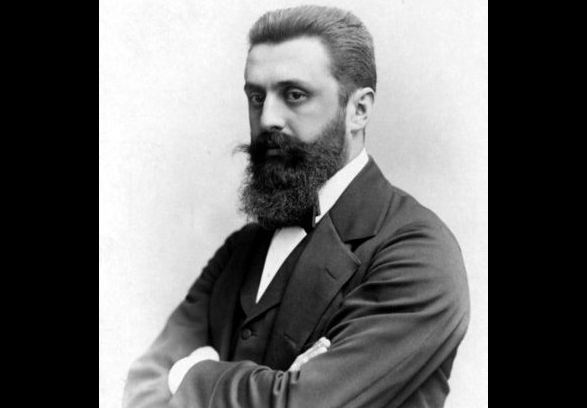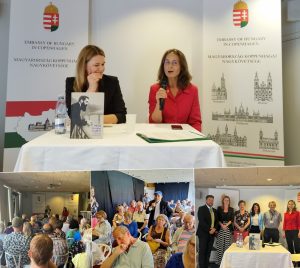In the western Hungarian city of Kőszeg, the former Zrínyi Miklós Street was renamed Schey Fülöp StreetContinue reading

On June 8, 2023, a panel discussion on the Diary of Theodor (Tivadar) Herzl was held in the framework of the Copenhagen Jewish Cultural Festival, organized by the Hungarian Embassy.
Theodor Herzl was born in 1860 into an assimilated, secular Jewish family in Budapest. He spent the first 18 years of his life in Budapest, then moved with his family to Austria, from there to Paris, and then back to Austria. He visited Budapest every year and his wife had Hungarian connections. Herzl’s name is intertwined with the most prosperous period of Hungarian nation-building.
Dorottya Baczoni, Director of the The Institute of the Twentieth Century, editor of the book, and Katalin Deme, professor of museology, linguistics, and history at the University of Aarhus, presented the life of the father of Zionism, the circumstances of the creation of his diary, and the topicality of the book.

Although the diary was originally written in German between 1895 and 1904, numerous translations have been published over the past century. The Hungarian edition was only published in 2022.
The complete diary is approximately 2,000 pages long and is available to the public as an e-book, the printed and presented version being a 700-page extract.
The diary presents in full detail the personal and professional life, daily trials, and challenges of Theodor Herzl and his responses to them.
In the diary, he outlines his long-term vision of a newly independent Jewish state that would define the very existence of Judaism. As such, Herzl can rightly be considered the father of Zionism.
Herzl recognized that liberalism was incapable of overcoming all social tensions, and that new foundations had to be laid:
the roots of his political Zionism were not found in traditional Jewish culture, but in secularized Jewish thought.
In Paris, he also came into contact with the phenomenon of anti-Semitism. One of his acquaintances there, the French writer Alphonse Daudet, suggested that he write down his thoughts on the Jewish question in the form of a novel.
Asked why it had taken more than a hundred years for the diary to be published in Hungarian, the experts in the discussion explained the answer by the horrors of the two world wars and the period of communism in Hungary afterwards, and the sensitivity of the subject since the regime change of ’89-90.
Although Herzl cannot be classified as either the classical right or classical left, it is difficult to attribute an identity model to him:
his ideas include conservative ideas and solutions based on traditional values, as well as progressive or liberal views.
Featured Photo via Facebook/Embassy of Hungary in Denmark